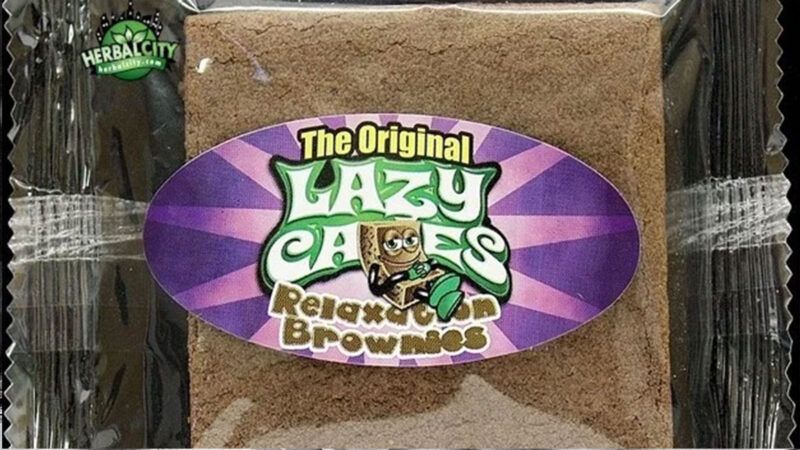Review: How Melatonin-Filled 'Lazy Cakes' Became the Subject of a Moral Panic
Senators asked for an investigation since the "sweet, chocolaty taste may encourage consumers to eat well over a recommended quantity of melatonin."

Lazy Cakes brownies promised "baked in" relaxation, thanks to a dose of melatonin. But they'd only been on store shelves for a few months in the early 2010s before becoming the subject of a moral panic about sleep-inducing baked goods.
"The inclusion of melatonin in baked goods raises numerous health concerns," Sen. Dick Durbin (D–Ill.) wrote to the Food and Drug Administration (FDA) in May 2011, asking the federal agency to launch an investigation because the "sweet, chocolaty taste may encourage consumers to eat well over a recommended quantity of melatonin."
Melatonin is widely and legally sold as a dietary supplement and natural sleep aid, and it has become more mainstream in the years since Lazy Cakes debuted. A single Lazy Cake contained about eight milligrams of melatonin; today, you can find 10-milligram melatonin pills almost anywhere health supplements are sold. Nevertheless, the FDA concluded that melatonin and brownies, though perfectly legal on their own, were somehow dangerous when mixed. The agency forced a label change.
As the FDA had its eye on the cakes, state and local officials in several jurisdictions went ahead and banned melatonin-infused products. A statewide ban of melatonin brownies, the Arkansas Department of Health declared, was necessary because the products could be especially dangerous to "young children"—even though "potential side effects associated with taking this hormone have not been fully determined."
This article originally appeared in print under the headline "Lazy Cakes."


Show Comments (19)